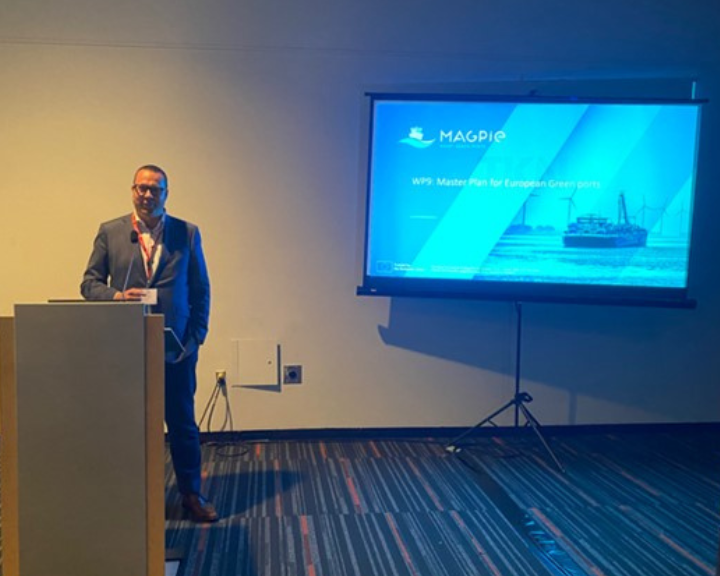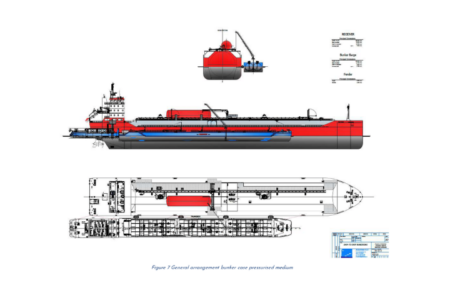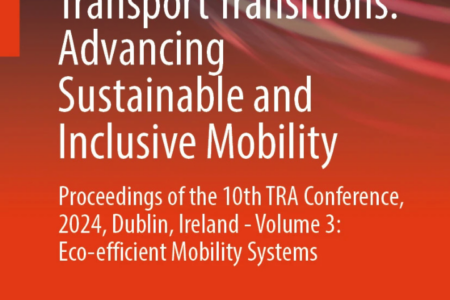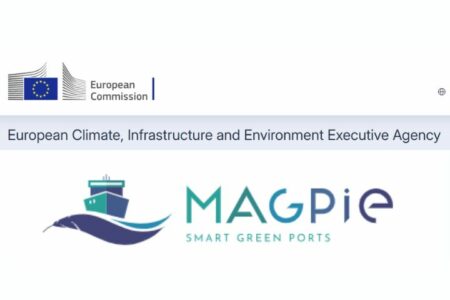During the World Conference of the Transportation Research Society (WCTRS 2023), held on Thursday, July 20th in Montreal, several MAGPIE members were present. WCTRS is a conference on transportation, with a focus on advice to policy. A panel discussion on the pivotal role of ports in driving the energy transition in the maritime sector was included. The panel, moderated by Dr. Michele Acciaro (AIVP expert, Copenhagen Business School), brought together distinguished experts, each contributing unique perspectives on port ecosystem energy transition. The panel also included Dr. Jeroen Pruyn (TUDelft) who provided an overview of the MAGPIE project, highlighted the importance of piloting and technology uptake. Jeffrey Willems from the PIONEERS project, also provided insights from the sister project, showcasing the significance of technology integration. During the discussion, several key themes were discussed including: the importance of piloting and how to accelerate technology uptake, cooperation and collaboration, the role of governance, incentives and regulations, what opportunities are there for developing economies, the need for cross-sectional studies, and addressing the cost of lock-ins. The discussion evoked the difficulty of progressing and if fast and alone or large and integrated was better. Jeroen also presented WP9 and MAGPIE’s vision generation during the panel discussion to adress the previous question.
Dr. Pruyn also presented the work of PhD student Hesam Naghash in MAGPIE for the global modeling of the energy transition in shipping, which is part of WP3. The results of his literature study were shown in the first morning session. The content will be reworked into a paper which will be disseminated later. Hesam Naghash looked at the best way to model Supply and demand for shipping including emissions impact and taking care of the variation of ships, variation between regions and identification of suitable technologies. Updating an existing Integrated Assessment Model is identified as the best way to go forward. This reflection is very much aligned with what is developed within MAGPIE.
Dr. Acciaro gave a talk titled “When Smart Become Green: The Strategic Role of Digitalisation in Accelerating the Energy Transition in Maritime Transport”, as part of the special session on Key Issues on Maritime, Port and Hinterland Digitalisation. The talk provided an overview of the role of digitalisation in advancing sustainability and the energy transition in ports. Digital infrastructure is key for realtime tracking of vessels and cargo, as well as for securely storing and protecting large volumes of data. Smart technologies such as digital twins, artificial intelligence, data analytics, and automation can be used to improve port efficiency and reduce emissions. A coherent approach is needed to digitalise complex systems such as seaports. 5G technology is an example of an enabling technology that can be applied in ports with potential benefits for the energy transition, but applications must be tailored to the specific needs of each port. In the talk Michele referred also to interviews conducted in the context of WP9 of the MAGPIE project to identify the issues that ports in and outside Europe faced in relation to digitalisation. The findings from the project showed that digitalisation is a priority for all ports interviewed, and that the implementation of smart technologies is seen as integral to the development of ports. Additionally, 5G networks can provide benefits to ports such as improved supply chain visibility, documentation and reporting procedures, communication with stakeholders, and support of energy transition technologies. Digitalisation holds significant potential to accelerate the energy transition in the maritime industry. Strategic focus on sustainability, industrywide adoption, regulatory support, and ongoing verification of digital technologies are, however, essential for success.




